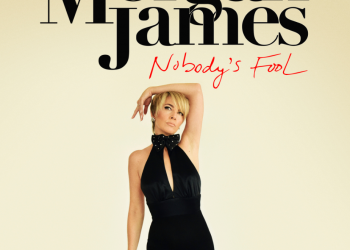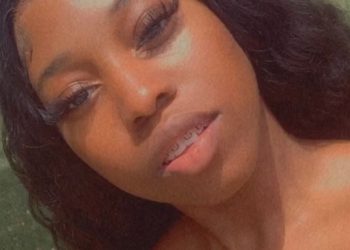Grammy Award winning producer-songwriter Chuck Harmony is well known in the music industry for making hits for artists like Ne-Yo, Chrisette Michele, Rihanna, Mary J. Blige, Fantasia, amongst many others. But unlike so many people in music, Harmony is not just in it for the money; he has a special love for the genre that made him rich; R&B.
With that being said, the hitmaker has one goal and that’s reintroducing the “swag” back to rhythm and blues, insisting the industry was the reason for the commercial slip of the once popular genre.
“We did it to ourselves, we let the genre die,” Harmony tells Singersroom exclusively. “What happen was so many of our talented people stepped on the Pop train and they forsaken their own music. We all just jumped on the Pop train because we thought that was winning. It was winning but I think we owe it to ourselves and to a genre we actually created to keep it moving.”
He continues: “We have not had a lot of ambassadors for R&B. Like Kanye [West] and Jay-Z, all them guys are ambassadors for rap. Drake is the new generation and Nicki Minaj is the new generation of rap. We don’t have that in R&B.”
Harmony insists music is now more about the lifestyle and not about the artistry, which prevents the creation of divas.
“It’s even less about the song and more about the lifestyle. We got to a point where it is not cool to be an R&B singer. It is not cool to listen to it. It’s cool to listen to Lil Wayne; that is some stuff we have to bring back to the table; the artistry and lifestyle,” says Harmony.
He adds: “I believe as it relates to a female artist, we have to bring the diva back. You remember when Mariah Carey was diva, Whitney Houston was a diva, Toni Braxton was a diva, like people wanted to be them. Now people go to BB and Aldo and get styled up and they look like anybody else walking down the street. Nobody wants to be that. I feel like we have to bring that back, that whole persona to black music.”
Harmony is planning to sign and release young talented acts who will become R&B ambassadors that fans from all genres will view as icons.
“You damn right, anything that comes from my studio I believe in it,” Harmony states about fighting for his genre of love. “I will put it out myself. That is why we make money. The difference between people today and the moguls back in the day; Master P and the Puff Daddy and all them were not scared to spend their own money to put sh*t out themselves or get themselves hot and have the record label come.”
Read more of our sit down with Chuck Harmony.
In today’s music industry, it seems like all genres have been changed and reshaped in one way or another. But why is R&B – once a popular, thriving genre of its own – seemingly fading away? According to award-winning producer Kuk Harrell, the answer lies within the industry itself.
Kuk Harrell has worked with some of contemporary music’s biggest names: Rihanna, Ne-Yo, Mariah Carey, Justin Bieber and more. He recently sat down for an exclusive interview to share his thoughts on how the industry as killed off traditional R&B and created pop divas instead.
From what he had to say about record labels pushing artists into certain roles and styles to how he navigates through this ever-changing landscape of music production – Kuk Harrell offers up an intriguing perspective on the state of modern R&B and where that leaves us going forward. Read this revealing article now to hear from one of the most successful producers in recent years!
Music Producer’s Story
Music producer Kuk Harrell is well-known for producing some of the biggest hits by Rihanna, Ne-Yo and Justin Bieber. In a recent interview, he opened up about his experiences in the music industry and how it has impacted R&B.
Harrell discussed how record labels have been a large part of creating pop stars instead of real artists – something that he believes has caused R&B to become diminished within mainstream media. He commented on how “the talent is still there” but doesn’t get as much attention because labels are more focused on building divas than developing true musical talent.
He went on to explain that this shift away from authentic music has resulted in what we hear today – overproduced songs with little substance or heart. Despite these drawbacks, however, Harrell remains hopeful for the future of contemporary R&B saying: “I think people will come back around to quality music when they realize that’s what they need.”
The State Of R&B Music
The current state of R&B music is a far cry from the genre’s heyday in the late 1990s and early 2000s. While there are still some artists who produce quality songs and break away from mainstream trends, they often receive little recognition or airtime on radio stations. Unfortunately, record labels tend to overlook more genuine R&B acts in favor of those that fit into their pre-conceived notions of what an artist should be.
This has shifted how people perceive R&B music as well. Many now associate it with shallow lyrics and overproduced beats instead of soulful melodies and thoughtful lyricism. It’s disappointing because this type of music can be incredibly powerful – allowing listeners to connect with its emotionality and expressiveness.
However, despite these challenges, many are hopeful for a revival within the industry when people start recognizing real talent again. With new platforms like streaming services emerging, musicians have been able to share their work directly with fans without any interference from producers or labels – showing that even though the landscape may have changed, true artistry will always prevail.
Conclusion
I think it’s important for us to listen to the stories of producers like this. It makes us more aware of what goes on behind the scenes in music production, and how industry standards can shape an entire genre. I believe that with continued effort from everyone involved, we can push R&B back into the spotlight once again, restoring its vibrancy and creativity.
We should also be mindful of our role as fans when it comes to supporting artists and shaping a healthier industry culture. We need to speak up when we see trends emerging that are detrimental to artistry or diversity – whether it’s creating “divas” or other damaging stereotypes. By lifting each other up, we have the power to create real change in music today.
Finally, by engaging with diverse perspectives within our own communities and beyond, we can learn a lot about the current state of R&B music, such as why some people feel that it has been “killed” by certain industry practices. This knowledge will help us better understand how we got here and where we go next – so let’s keep the conversation going!
Since 2005, Singersroom has been the voice of R&B around the world. Connect with us via social media below.








